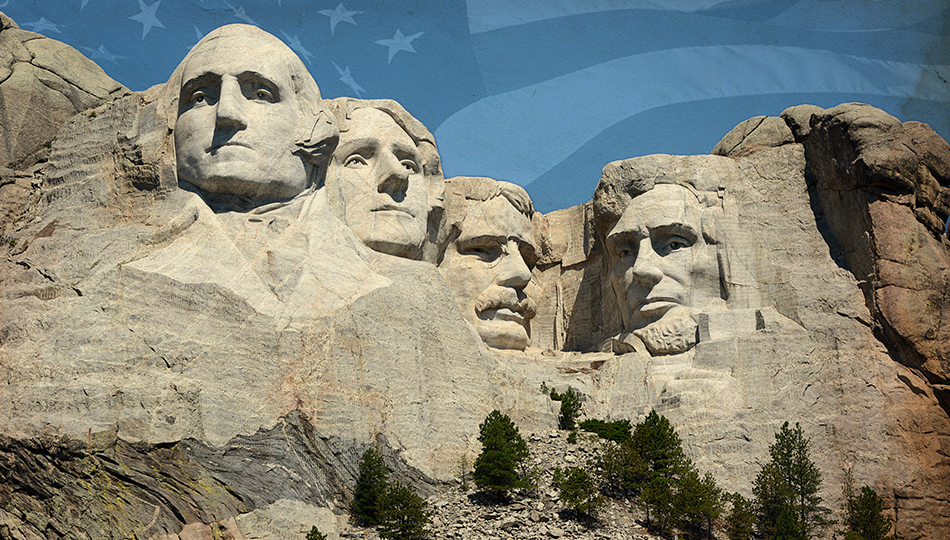
What Is President’s Day?
President’s Day is a federal holiday that occurs on the third Monday of every February. It was established to celebrate the executive branch of the United States government, and the Americans who served us there. The holiday has a long and interesting history stretching across nearly the entirety of U.S. history, from 1799 to today.
George Washington’s birthday, February 22, has been celebrated since his death, and was established as a federal holiday in 1879. In 1971, as part of the Uniform Monday Holiday Act, in an effort to move federal holidays to Mondays to give people more three-day weekends, President’s Day was created for its proximity to the birthdays of Washington, Abraham Lincoln, and Franklin D. Roosevelt, as well as others.
George Washington’s birthday is still officially celebrated as a state holiday, or local celebration in some states and cities, and many individual presidents are celebrated on their birthdays in their home states. President’s Day provides a day everyone in the country can reflect on past leadership, and perhaps what we might wish to see more of from our executive branch in the future.
Does George Washington Have Two Birthdays?
As strange as it sounds, if you look into official records from the time, he actually does! In the 1700s, Britain hadn’t changed over to the Gregorian calendar like much of the rest of Europe had, and it was becoming a problem. The year started on March 25, they had 10 extra days, and it was making communications, trade, recordkeeping, and many other fields difficult.
Twenty years after George Washington’s birthday, which was recorded under the Julian calendar as February 11, 1731, the British agreed to adopt the Gregorian calendar. The adaptation involved removing 10 days from the year, as well as moving the start of the year to January 1, from March 25, bumping Washington’s birthday up to February 22, 1732.
Enjoying this content? Find out how you can get more essential updates and self-defense information just like this sent straight to your inbox.
Why Is President’s Day on a Different Day Each Year?
As part of the Uniform Monday Holiday Act, the U.S. government decided that, starting in 1971, as many holidays as possible would occur on a Monday in order to increase the number of three-day weekends working people had. There were many famous presidents with birthdays around February, and George Washington’s birthday had been officially celebrated on February 22 for nearly a century. So, it seemed a natural choice to replace the one holiday celebrating Washington, with a single Monday celebrating all presidents.
Presidents and the Second Amendment
Several early American presidents participated in the writing of the Constitution, so it should come as no surprise that they were in favor of the Second Amendment. Selected quotes are represented below, for your consideration.
“The Constitution preserves “the advantage of being armed which Americans possess over the people of almost every other nation…(where) the governments are afraid to trust the people with arms.” – James Madison
Madison, the fourth president of the United States correctly points out that the nature of America as a country of armed people, free to choose their government through the electoral process, (or to remove it should it prove tyrannical) is unique.
“No freeman shall be debarred the use of arms (within his own lands or tenements)” – Thomas Jefferson, in an early draft of the Virginia Constitution.
In writing the Virginia Constitution, Jefferson illustrates the link in his mind between freedom and access to arms. Clearly, the experience of the Founding Fathers leading up to the Revolution illustrated the significance of the ability to resist one’s own government.
“I advise the gun. While this gives a moderate exercise to the body, it gives boldness, enterprise, and independence to the mind. Games played with the ball and others of that nature, are too violent for the body and stamp no character on the mind. Let your gun therefore be the constant companion of your walks.” – Thomas Jefferson, offering advice to his nephew on how to exercise.
Sound advice from Jefferson, this is a great quote not only for its accuracy, but also the window it provides into what sort of a man he was. In fact he placed 1st (August 20, 1768) and 2nd (September 30, 1769) in two local shooting competitions during his day, and kept detailed records of his regular firearm purchases, and gunsmithing needs.
Frequently Asked Questions About President’s Day
Your Protection Starts Here!
BECOME A MEMBERThe information provided in this publication is intended to provide general information to individuals and is not legal advice. The information included in this publication may not be quoted or referred to in any other publication without the prior written consent of U.S. LawShield, to be given or withheld at our discretion. The information is not a substitute for, and does not replace the advice or representation of a licensed attorney. We strive to ensure the information included in this publication is accurate and current, however, no claim is made to the accuracy of the information and we are not responsible for any consequences that may result from the use of information in this publication. The use of this publication does not create an attorney-client relationship between U.S. LawShield, any independent program attorney, and any individual.





This article is incorrect. The federal government observes George Washington’s Birthday on the Monday closest to February 22. One time, at the behest of Congress, President Reagan declared that day to be Presidents’ Day, shortly after Congress eliminated the observation of Lincoln’s Birthday and added Martin Luther King (Jr.) Day.